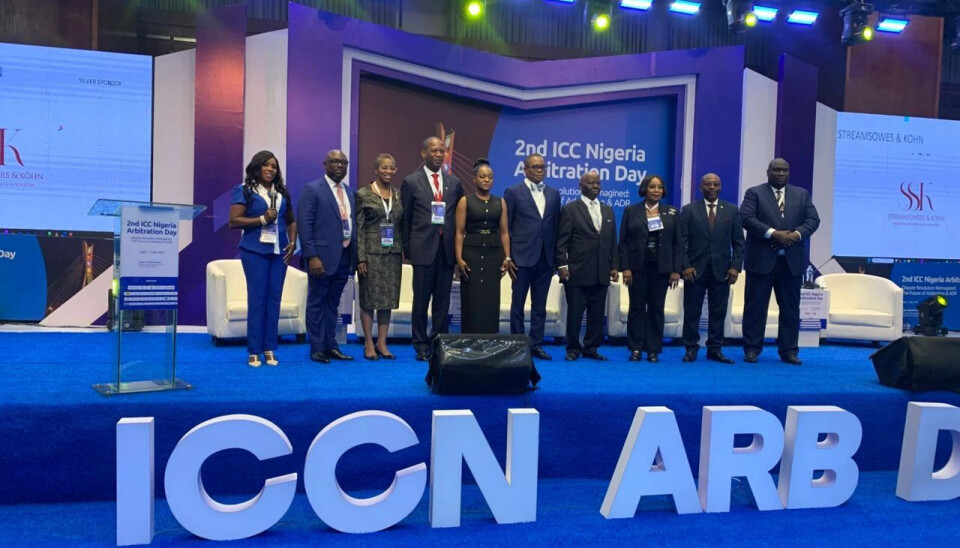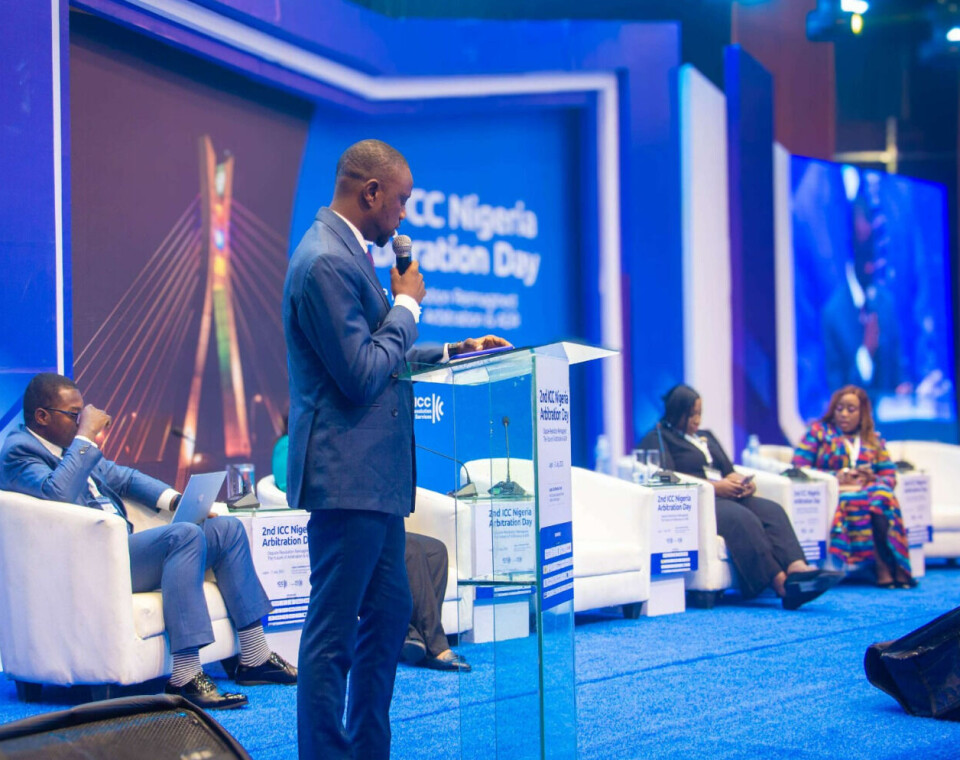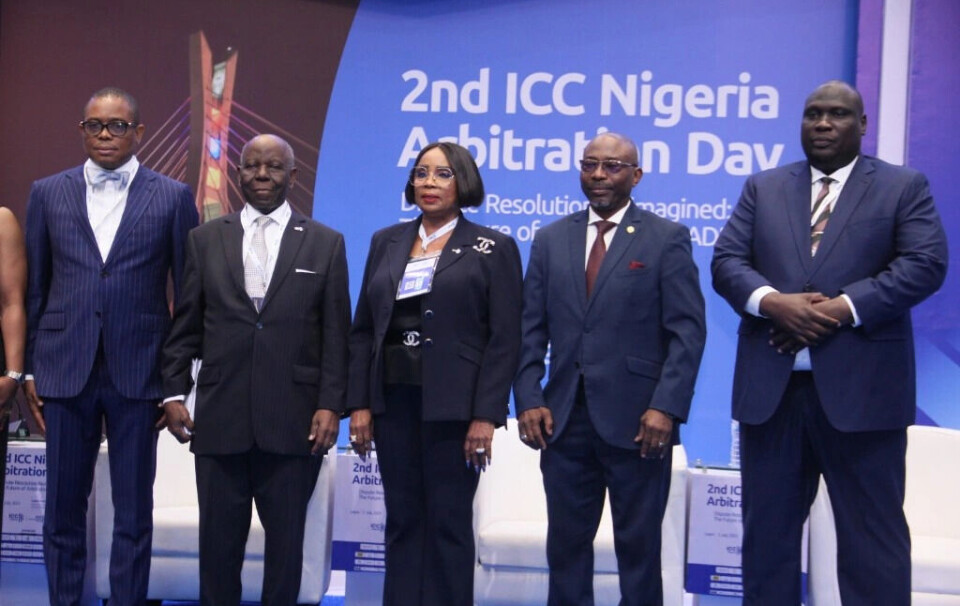Copyright : Re-publication of this article is authorised only in the following circumstances; the writer and Africa Legal are both recognised as the author and the website address www.africa-legal.com and original article link are back linked. Re-publication without both must be preauthorised by contacting editor@africa-legal.com
Reimagining Dispute Resolution: ICC Nigeria Arbitration Day charts the future of arbitration and ADR

Last week, the 2nd ICC Nigeria Arbitration Day was held in Lagos. Joseph Siyaidon, Publicity Sub Committee Chair, reflects on a remarkable event where ADR experts gathered to help grow and shape arbitration in the region

The second edition of ICC Nigeria Arbitration Day brought together leading voices in arbitration and alternative dispute resolution (ADR) from across the globe, fostering insightful discussions and networking opportunities that will contribute to the growth of international arbitration in Nigeria.
Organised under the theme “Dispute Resolution Reimagined: The Future of Arbitration & ADR,” this remarkable event was held on 2 July at the Lagos Continental Hotel. As Chair of the Publicity Sub Committee, I had the privilege to witness firsthand the dedication and hard work that went into making the second ICC Nigeria Arbitration Day a great success.
The opening session featured welcome remarks from Chief Olusegun Osunkeye, CON, OFR, the Chairman Emeritus of ICC Nigeria, and Dorothy Udeme Ufot, SAN, Chair of the Commission on Arbitration & ADR, who called for deeper institutional engagement and international collaboration.

Representatives of Nigeria’s Attorney General and Minister of Justice, Chief Lateef Olasunkanmi Fagbemi, SAN, and the Governor of Lagos State, respectively emphasized government support for a credible and efficient arbitration ecosystem, and pledged ongoing commitment to reforms that will enhance Nigeria’s standing as a dispute resolution hub.
Alexander G Fessas, ICC International Court of Arbitration Secretary General, delivered a keynote challenging attendees to adopt future-facing strategies to ensure arbitration remains relevant, efficient, and accessible. His remarks highlighted the importance of adaptability and cross-border cooperation in shaping the next phase of global dispute resolution.
The evolution and practice of international arbitration was then canvassed by four expert panels covering a range of topics from risks and rewards to DEI considerations, ethics, and the critical role of in-house counsel.
The first plenary session, “International Arbitration and Mediation – Risks, Rewards, Ethics and the Future,” featured insights from a panel of experts including Godwin Omoaka, SAN, Fernandez Marcus-Obiene, and Thomas Kendra. Speakers explored the evolving expectations around ethics, transparency, and the role of technology, while also discussing how local practitioners can tap into emerging global opportunities.
Ifeoma Utah of MTN Nigeria then moderated a panel discussion on “Diversity, Equity & Inclusion: Dialing Back or Striding Forth?”, featuring insights from Dorothy Udeme Ufot, SAN, Natasha Peters, Ugonna Ogbuagu, and Pierre Daureu. This panel took a broader view of inclusion in arbitration, extending beyond gender to address race, disability, and sexual orientation. They stressed the importance of mentorship, structural change, and intentional institutional practices to create a more inclusive and representative arbitration field.
The third panel moderated by Adedoyin Rhodes-Vivour, SAN focused on“Ethics in International Arbitration,” featured Thomas Snider; Gbolahan Elias, SAN, Fabian Ajogwu, OFR, SAN, and Mark Mordi. The panelists examined the growing relevance of disclosure and the standards set by frameworks such as the IBA Rules on Conflicts of Interest. There was general consensus on the importance of transparency in building trust within the arbitral process and reducing perceptions of bias or conflict.
The final session, “Effective Management of International Arbitration: The Critical Role of In-House Counsel”, was moderated by Micheal Ugah and featured several leading in-house counsel: Lois Oni of NLNG; Chinwe Odigboegwu of ATC Nigeria; Folake Sadiq of Westfield Energy Resources; Chukwumauzo Torti of Aba Power; and Adekunle Olaofe of Flutterwave Technology Solutions.
The expert panel spotlighted the strategic role of corporate legal teams in arbitration, and reflected on how in-house counsel influence everything from dispute prevention and tribunal selection to budgeting and case strategy. They made clear that successful arbitration outcomes often hinge not just on legal arguments, but on proactive, informed management by corporate legal departments.
After Godson Ugochukwu, SAN, Chairman of the Planning Committee, gave some closing remarks and Oyinkansola Badejo-Okusanya delivered a vote of thanks, ICC Nigeria Secretary General Olubunmi Osuntuyi formally wrapped up the 2nd ICC Nigeria Arbitration Day, which then transitioned into a lively dinner and cocktail reception - offering participants a relaxed atmosphere to connect and reflect on the day’s insights.
ICC Nigeria Arbitration Day 2025 made clear that the future of dispute resolution in Africa depends on innovation, inclusivity, and cross-sector collaboration. As institutions evolve and a new generation of arbitrators steps forward, the momentum for reform and excellence is unmistakable.
Joseph Siyaidon is Lead Counsel at Joseph Siyaidon LP and Chair of the Publicity Sub Committee for the 2nd ICC Nigeria Arbitration Day.
